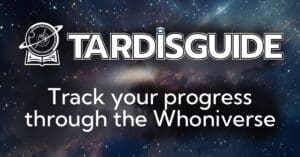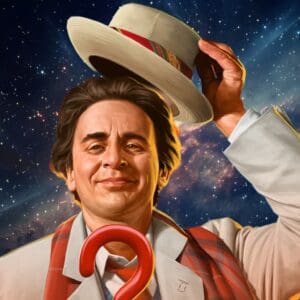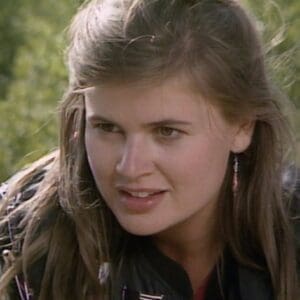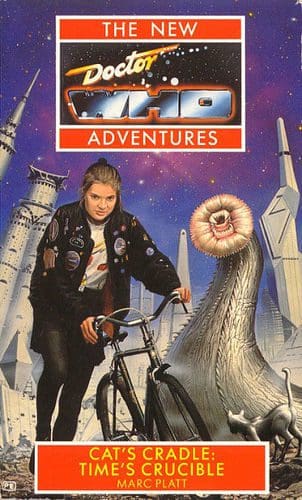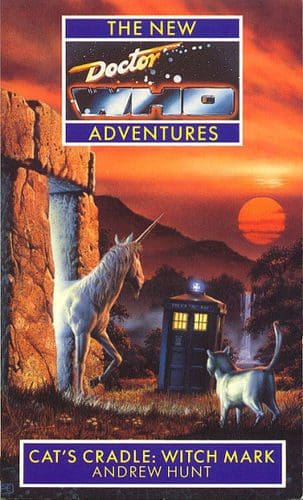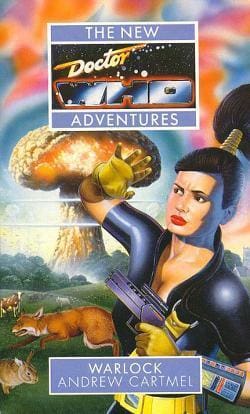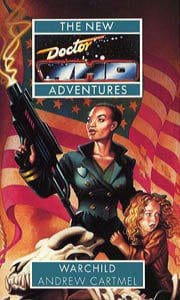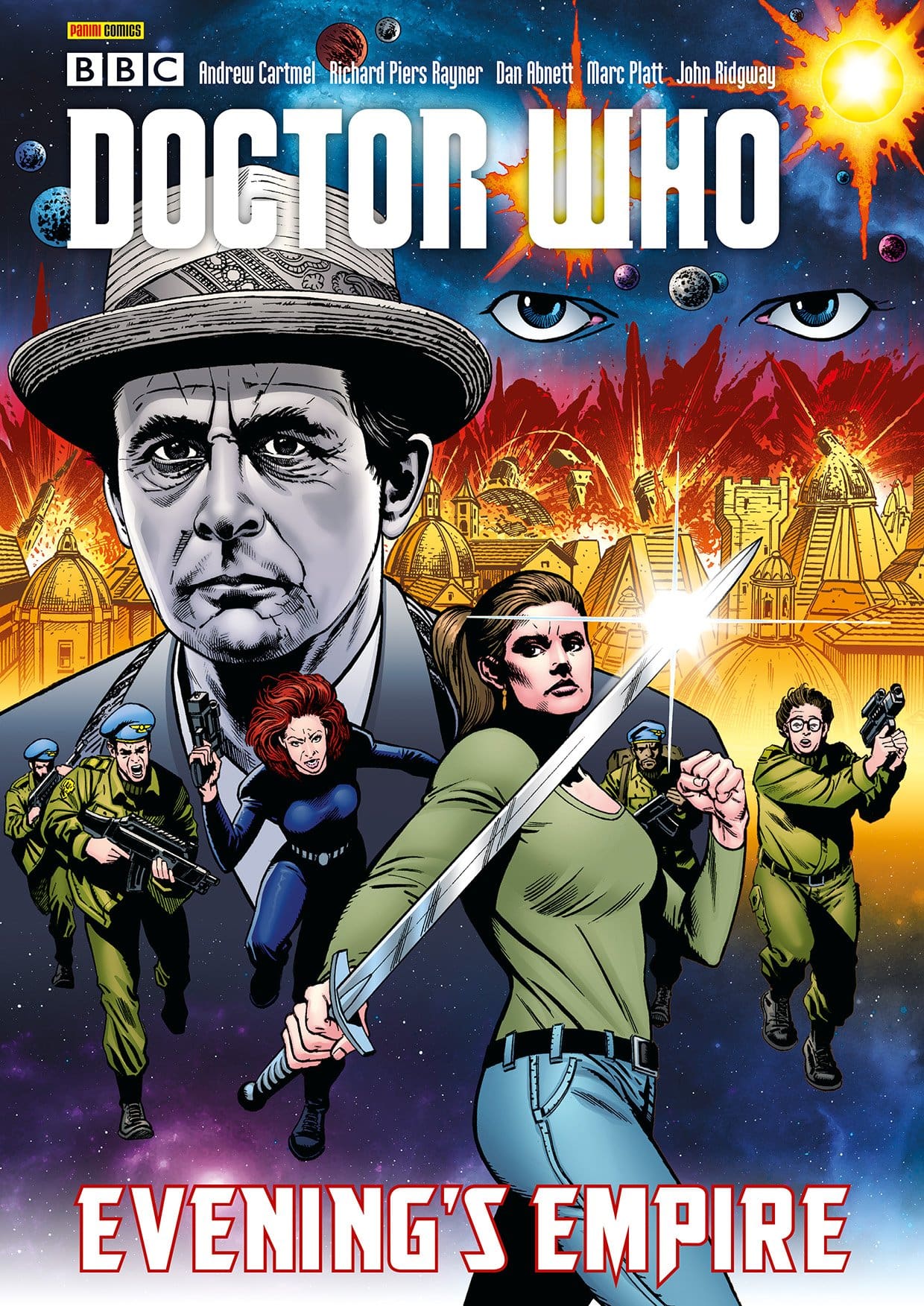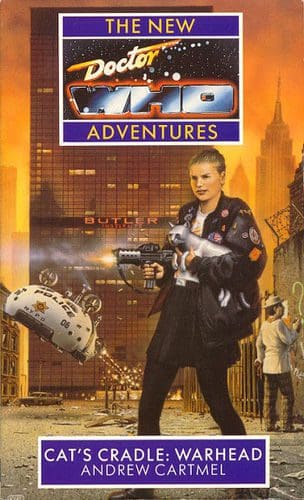
Virgin New Adventures
Cat’s Cradle: Warhead
Reviews and links from the Community
This review contains spoilers
Review of Cat’s Cradle: Warhead by MrColdStream
❌(3.6) = VERY BAD!
Thworping through time and space, one adventure at a time!
Andrew Cartmel immediately transports the reader to a future Earth very similar to our current world: polluted, technologically advanced, with corrupt corporations, and on the brink of collapse. It must have felt scary thirty years ago, and it feels dishearteningly realistic today.
I struggled immensely with this novel. It took me eight days to finish this novel, and I usually finish DW novels in two or three days. My biggest problem is that there are too many characters I don’t care about, a needlessly convoluted plot, and not enough of the Doctor or Ace to make this one interesting or rewarding. I simply found it dull and dragging, and I could only read a couple of chapters at a time before I found myself annoyed by the book and my mind wandering.
It’s not all bad, though.
Cartmel has a very rich writing style, and his worldbuilding and themes are superb. He also writes a very believable Doctor and Ace when they actually do appear. The last third of the book is actually pretty interesting. This novel has some violence, nudity, and bizarreness we would never see on TV, but unlike John Peel and Timewyrm: Genesys, Cartmel actually writes it much more tastefully.
While Timewyrm: Revelation and Cat’s Cradle: Time’s Crucible are confusing, convoluted, and weird at times, at least they haver strong ideas, intriguing characters, and an effortless flow. This one simply doesn’t work for me, despite some of its very scary and very palpable ideas and themes.
I might need to reread this one to fully appreciate it, but as it stands, it's not one of my favourites.
Review of Cat’s Cradle: Warhead by Melting_Snowman
Essential reading.
This is a very unusual one; essentially, it's mostly told as a series of vignettes of how the various people in this world are affected by both it and by the Doctor's presence. It's ambitious, weird, layered, and basically everything I was hoping to find in the VNAs.
Definitely a difficult read in places though. It feels a bit like Torchwood at its best, except not quite as dark or intense as that series tended to get. Certainly, however, it is a rather bleak vision of a scifi future, told in a manner that doesn't exactly make it an easy read, but a very rewarding one.
One of the most fascinating parts of this book is that it's Andrew Cartmel delivering a very pure version of his vision of the Doctor. And yet, we actually don't see him in the book very much. And when we do see him, he sort of wanders into somebody else's story, and often his presence is bad news for them. Very bad news. He's in full Time's Champion mode here; he will always act in the interest of good, but sometimes that means not being a good person. I feel this take would ripple through the rest of the VNAs, and would rather significantly inform Russell T's take on Christopher Eccleston's Ninth Doctor. Less so the Tenth, much less so Ncuti. I think Moffat had it in mind a bit for both of his incarnations. Especially Capaldi.
This book has two direct sequels later on in the range, Warlock and Warchild, neither of which I have read, but both of which I am eagerly looking forward to.
Recommended background: None, really. You ideally need to be familiar with where Ace is at this point, but let's be honest, if you're reading this book, you've probably got that down pat.
Worthwhile background: Remembrance of the Daleks (season 25), Ghost Light (season 26), The Curse of Fenric (season 26)
In my reviews, particularly of the Virgin New Adventures, I prefer to use a 4-tier system of grading:
Essential reading - If you want to read all the best VNAs, get all the most memorable story arc beats, and generally enjoy the VNAs without having to trudge through the mediocre/bad books, or perhaps even if you just want to pick up a good Doctor Who book with no intention of reading the entire series, look for this rating.
Worthwhile for extensive reading - Not outstanding, but I won't outright tell you to skip it if you want a sense of the VNAs overall. If you're determind to only read the best, skip these, but for a read-through of the series, I wouldn't skip them. They're the worthwhile, good-but-not-amazing books. You'll get a stronger sense of character arcs, story arc beats, and the growth of the VNAs as a range if you read these, but it will also take you a lot longer.
Not recommended - Not very good. If you really want to maximise your experience of the VNAs, you could read this, but it's definitely not advised.
Avoid at all costs - An irredeemable lump of human fecal matter. Do not waste your time with this insult to the franchise.
In addition, I list Recommended background that you may find necessary for understanding the story in full, as well as Extensive background for some additional details you may find interesting.
This review contains spoilers
Review of Cat’s Cradle: Warhead by PalindromeRose
Virgin New Adventures: Cat’s Cradle Trilogy
#006. Warhead ~ 9/10
◆ An Introduction
Cyberpunk fiction is never something that has interested me, despite how much I adore exploring a dystopian landscape filled with mercenaries and hackers who are unburdened by morality. It’s undeniable that the genre has had a resurgence in the past few years, in part thanks to the people at CD Projekt Red, who created one of the most hyped video games of 2020. Shame then that Cyberpunk 2077 was beset with bugs and performance issues upon its release. Issues that led to its developers being subjected to several class-action lawsuits! I’ve never played the game myself, because I refuse to fork out several grand for a brand new gaming computer, but the soundtrack is certainly excellent.
Cyberpunk fiction is dark, depressing and gritty… so let’s see how Doctor Who adapts to such a genre.
◆ Publisher’s Summary
The place is Earth. The time is the near future — all too near.
Industrial development has accelerated out of all control, spawning dangerous new technologies and laying the planet to waste. While the inner cities collapse in guerrilla warfare, a dark age of superstition dawns.
As destruction of the environment reaches the point of no return, multinational corporations and super-rich individuals unite in a last desperate effort — not to save humankind, but to buy themselves immortality in a poisoned world.
If Earth is to survive, somebody has to stop them.
From London to New York to Turkey, Ace follows the Doctor as he prepares, finally, to strike back.
◆ The Seventh Doctor
Andrew Cartmel was script-editor throughout the McCoy years, so you would expect his characterisation of the umbrella man to be absolutely immaculate… and it is! This incarnation of the Doctor is well known for being the chess-master, the devious little manipulator who uses others like pawns in his grand schemes, and that characterisation feels fully realised in ‘Warhead’. I know a lot of people dislike this novel, but I think the Seventh Doctor is extremely well catered for here.
The Doctor believes that it’s sometimes necessary to fight back. He tells Brodie that he’s not like other grown-ups. He looked exactly the way Shreela remembered. Pale eyes, thinning hair. Indeterminately old. But no older than the last time she’d seen him. The Doctor claims that the problem with plans is that they tend to take on a life of their own. People tend to get hurt (like when the gang of thugs he’d paid to lure Bobby Prescott to the library decided to stick a knife in his neck as well). Sometimes the Doctor would speak about the way events took shape, the future growing invisibly around you. And every action you took contributed to that shape, like putting your fingers to wet clay spinning on a wheel. Except the clay hardened impossibly quickly. Harder than concrete. And you were stuck with what you shaped.
◆ Ace
Despite not appearing until chapter seven of ‘Warhead’, Ace is incredibly well written throughout this novel. Cartmel writes her as this firebrand, almost like an action hero. Whilst carrying out a mission in Turkey, she’s forced to kill someone. This honestly feels like foreshadowing for the rapid change her character will undergo in the thirteenth book. Either way, exceptionally well written.
Ace’s hearing and vision had taken on a strange clarity after the sleepless nights travelling. She liked solid reality, when she could get it. She liked walking with the Doctor, liked having a chance to talk. Ace knew it was dangerous to tamper with someone’s beliefs. People cherished their delusions. But that doesn’t stop her calling out the crap and superstition Justine spouts on a regular basis.
◆ Story Recap
The environmental crisis has finally gone past the point of no return. Pollution has gotten so bad that cancer and disease are widespread, and you’re considered healthier than most if you’ve only had a lung transplant! Corporations are hiring mercenaries to non-lethally snipe people, then posing as paramedics so they can kidnap their victims and harvest the organs, which will then be sold on the black market.
The Butler Institute are painfully aware that this is only a temporary solution to the current crisis, so they employed one of their top executives to come up with a better idea. Mathew O’Hara conceived of a plan for humanity to survive the ever worsening crisis by having copies of their minds uploaded into computers. A well-fortified bunker to house the project has already been constructed deep beneath his mansion in the Catskill Mountains. Testing is already well underway.
Learning of this insane plan for survival, the Doctor has been gathering information and recruiting allies to assist him in tearing it all down. The fate of the human race now rests with a passionate environmental activist, and a strange boy in possession of psychic powers.
◆ Prose Juicier Than A Medium Rare Sirloin!
Andrew Cartmel managed to hack off an entire section of the fandom by creating a mature and bleak cyberpunk tale and slapping the Doctor Who branding onto it. That section of the fandom are frankly idiots. I’m most definitely a supporter of ‘Warhead’, and I hope this review will convince you all to give it a fair chance.
I’d like to kick this review off by discussing prose. Cartmel instantly gets brownie points from me for how wonderfully written this novel is. The prose is rich and descriptive, flowing from page to page and chapter to chapter. We spend the first half of this adventure being introduced to seemingly insignificant and random people, just going about their day in this dystopian future. They then encounter the Doctor, and meet a terrible fate shortly afterwards: such as a serial killer being left to the brutal mercy of the gang he’d preyed upon, or a cleaner being left to have a seizure and die alone in her Toyota. I did say this story was bleak.
Cartmel uses these sections to paint some incredibly vivid backstories. The aforementioned serial killer was involved in defending his local library during the anti-book riots of the 1980s. The novel then goes on to describe how he loved the magic and the escapism of books. How he loved that rich, spicy mustiness that accompanied books, old books, library books. Books that had gone through a thousand hands. Their pages stained and dirty. My favourite novels are always the ones filled with juicy descriptions, because they aid you in constructing some gorgeous mental imagery. It’s why I found the prose in this release so captivating.
◆ The Eco Warrior & The Telepath: Part One
Moving on now, I’d like to discuss two characters that play crucial roles in the plot of ‘Warhead’. When she was seven years old, Justine witnessed her best friend Cheryl killed when she was struck by a car attempting to cross a busy street. The anger and loneliness she felt over her friend’s death strongly influenced her. By the time she was seventeen, she had adopted a belief system which blended ecological activism and magic.
Joining the environmentalist movement, she began destroying cars with petrol bombs and sledgehammers. It would be a fair assessment to describe Justine as mentally unstable, but she is just this working class girl kicking back at the injustices of the world… sound familiar?
You can very easily draw comparisons between Justine and Ace, the main difference being that the former believes in the supernatural while the latter believes in science. They’re very much two sides of the same coin – they even have a debate about their beliefs; with our resident eco warrior claiming that the Doctor is some sort of wise and benevolent sorcerer! A complete lunatic, no doubt about it, but she basically acts as a second companion throughout this adventure.
The other character I wanted to discuss is Vincent Wheaton. A strong telepath who accessed his powers by making physical contact with someone else, whereupon he could read their memories and emotions, amplifying them and releasing the psychic energy to move or reshape matter. He first discovered this ability when he reshaped one of his friend’s bicycles into a monster that murdered a gang who were bullying them, leaving only the ringleader alive (said ringleader being the previously mentioned serial killer from the library).
The Doctor’s plan for bringing down the Butler Institute is honestly ingenious, but it all depends on these two people – Vincent would make contact with Justine and tap into her anger at the destruction of Earth’s environment to destroy the Institute’s bunker beneath the Catskill Mountains. But that plan failed because Justine fell in love with Vincent. This meant that the telepath had to use Mathew O’Hara’s coldness to destroy both him and the site. With the Institute’s plans in tatters, Vincent and Justine were free to live their lives together… well, until we likely meet them again in the sequel to this adventure (I am massively looking forward to ‘Warlock’).
◆ The Cat Fell Out Of The Cradle
I should probably stop avoiding the topic of the Cat’s Cradle arc and discuss why it was a complete disaster. So originally, the three stories in this trilogy were given the titles;
- ‘Cat’s Cradle’
- ‘Warhead’
- ‘Witch Mark’
Peter Darvill-Evans apparently adored the title of Platt’s novel… which is the sole reason this trilogy got created. What in the name of sanity was going through his head when he made that decision? Probably two gallons of neat Absinthe! I’ve seen many reviews complaining about how both Cartmel and Hunt’s novels barely even tackle the present story arc, but you really cannot blame them for that. They were forced to nit their adventures together at the last minute thanks to a moronic decision made by their editor, hence why the mercury-based cat from the previous novel appears for about one scene in ‘Warhead’. Just thought I should discuss why I haven’t really paid attention to the Cat’s Cradle arc – it’s practically non-existent!
◆ Conclusion
“Sometimes it’s necessary to fight back.”
The world has gone beyond the brink of environmental collapse, and an insane corporation plans on saving only the rich and the powerful by placing their minds into a vast computer database. The Butler Institute must be stopped in their tracks, and the Doctor has the solution – weaponising the human race, forcing them to take a stand against their corporate overlords!
It baffles me that there are people out there who cannot stand ‘Warhead’, despite it being one of the most exciting adventures in this range so far. A truly gripping slice of cyberpunk fiction that features the Doctor at his most cold, detached and unforgiving. I genuinely forgot how much I adored this novel. I can highly recommend you track down a copy for yourself.
Community Ratings
(Updates coming soon:)
Add the last X members who rated it here
Add number of Favs, and who they are, here


